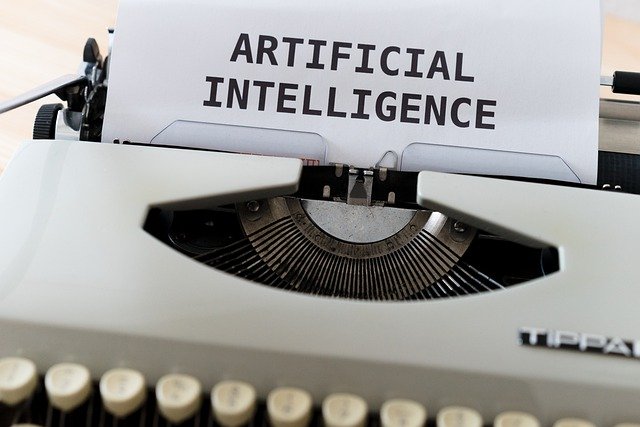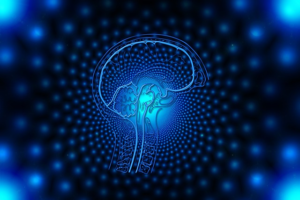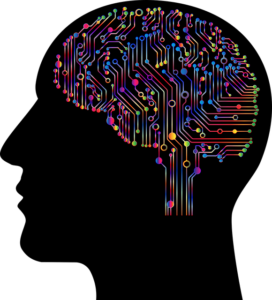An interview with Links & Gains discussing artificial intelligence in Egypt – Lexology
Mohamed Agamy is the founder and managing partner of Links & Gains Law Firm. Mohamed is a bilingual lawyer and a driven professional legal consultant with a proven track record of over 18 years of leading successful international legal transactions. Mohamed has a diverse business area of expertise across North Africa and the Middle East. Prior to establishing Links & Gains Law Firm, Mo…….

Mohamed Agamy is the founder and managing partner of Links & Gains Law Firm. Mohamed is a bilingual lawyer and a driven professional legal consultant with a proven track record of over 18 years of leading successful international legal transactions. Mohamed has a diverse business area of expertise across North Africa and the Middle East. Prior to establishing Links & Gains Law Firm, Mohamed was the head of legal at BG (Shell) & Petronas LNG Downstream JV, successfully leading negotiations and closing key settlement agreements to preserve and enhance shareholder value. Mohamed is certified in Contract Laws from Harvard University edX 2018, and has na LLM in international legal and commercial transactions. Mohamed was appointed to expert cross-border associate (CBA) exclusively for Egypt, particularly in M&As, corporate transactions, commercial litigation, advisory on due diligence with exposure awareness for high-level legal issues in the oil & gas and energy sectors; with expertise in aviation, shipping, logistics and taxation.
Omar Elzayat is an attorney and legal research specialist at Links & Gains Law Firm Egypt. Omar specialises in corporate legal affairs, commercial and investor-state arbitration. In addition, he is a legal research specialist who carries out research on a variety of legal topics. Omar holds an LLB degree from Ain Shams University Egypt and an LLM degree from Middlesex University London.
1 What is the current state of the law and regulation governing AI in your jurisdiction? How would you compare the level of regulation with that in other jurisdictions?
The Arab Republic of Egypt made a leap forward in its position at the Oxford Insights’ Government Artificial Intelligence (AI) 2020 .
This leap forward is mostly attributed to the creation of the National Council for Artificial Intelligence (NCAI) in 2019. The Council was established per Prime Minister’s Decree No. (2889) of (2019) with the Egyptian Cabinet’s approval. It’s worth noting that Egypt advanced from the 111th place in 2019 to the 56th in 2020 on the Oxford Insights’ Government Artificial Intelligence (AI) Readiness Index 2020.
NCAI has offered out of the box solutions. Its forward-thinking mandate includes developing policies, rendering opinions related to the technical, legal and economic implications of AI integration and drafting laws and bills related to artificial intelligence to be presented to the Parliament. Another essential responsibility for NCAI is developing and overseeing the implementation of a national strategy for artificial intelligence.
A number of authorities and ministries come together. The Council, which reports to the Cabinet, is presided by the Minister of Communication and Information Technology (ICT), with members representing several concerned authorities, namely the ministries of Defence, Foreign Affairs, Planning, Interior and Higher Education, the General Intelligence Directorate and the Administrative Control Authority. This is in addition to three specialised professionals chosen by the President.
2 Has the government released a national strategy on AI? Are there any national efforts to create data sharing arrangements?
Certainly, Egypt’s National Artificial Intelligence Strategy following a phased approach relied on four key pillars: AI for government, AI for development, capacity building, and international activities, released by the NCAI in 2019.
Thus, enabling the NCAI to utilise AI technology to develop governance mechanisms within the country. Among the government’s top objectives from this strategy are the data monetisation strategies and research and academia in the AI field with many others.
In 2020, the first phase started. It focused on two main targets. The first was preparing graduates and professionals to meet market demands. The second was launching pilot projects within the government in collaboration with local and international partners to demonstrate the value of AI in several vital sectors.
3 What is the government policy and strategy for managing the ethical and human rights issues raised by the deployment of AI?
Egypt has placed human rights issues as an essential priority. Egypt is an active participant in the UNESCO initiative for ethical standards for AI. The NCAI developed a more-localised, dedicated track for AI ethics that shall aid the government, businesses and individuals in avoiding the ethical dilemmas of AI.
The NCAI wanted to secure all aspects that might accompany the use of AI within the Egyptian society. Concerned with identifying the issues that may arise within the Egyptian society due to the integration of AI, NCAI carefully provides guidance to the government on the ethical and legal use of AI relevant to the local context. The Council is also on its way to issuing the comprehensive ‘Egyptian Charter for Responsible AI’, which will guide AI practitioners and companies for the responsible and ethical use of AI technology.
The first country in the region to adopt the Organization for Economic Cooperation and Development (OECD), Egypt is also keen to be an active player in regional and international initiatives concerned with the ethical dilemmas of AI. Fully aware of the importance of benefiting from international efforts, Egypt is watching with a keen eye the effect and the process in other societies. Most recently, the Egyptian ICT Minister – also the President of the NAIC – participated in drafting the recommendations on the responsible use of AI developed by the OECD.
4 What is the government policy and strategy for managing the national security and trade implications of AI? Are there any trade restrictions that may apply to AI-based products?
Putting data protection and freedom as a priority, the government has taken conscious steps in the field of cybersecurity and data protection. The Personal Data Protection Centre will be responsible for developing, designing, executing and standardising personal data protection policies across Egypt.
In detail, these efforts are highlighted by the Egyptian Parliament passing Law No. (151) on Personal Data Protection. Article (2) of the Personal Data Protection Law stipulates: ‘the provisions of the law shall apply to Egyptian nationals inside or outside Egypt, foreign nationals residing in Egypt, and foreign nationals outside of the Egyptian territory if the act committed represents a punishable crime in the territory where it is committed and was committed against an Egyptian national or a foreigner residing in Egypt.’
As per article (19) of the same law, the ‘Personal Data Protection Centre’ will be established as a public authority to work on the development and overseeing of policies and procedures relevant to personal data protection.
The Centre’s mandate covers issuing and revoking the necessary licences, permits and authorisations for collection and processing of personal data. It also includes establishing rules for personal data processing, receiving complaints about the violations of personal data protection laws, inspecting any persons or businesses working with personal data.
5 How are AI-related data protection and privacy issues being addressed? Have these issues affected data sharing arrangements in any way?
In addition to the Personal Data Protection Centre, the National AI Strategy introduced a ‘data classification’ framework that allows businesses and government bodies to classify measures for each separate category using AI systems. With the framework in place, all concerned parties will be aware of the level of criticality of the data involved.
The classification method chosen is extremely precise. The published framework classifies data into categories ranging from top secret, the disclosure of which is a threat to national security, secret data and confidential data to sensitive but unclassified data (SBU) and unclassified data.
The data classification framework, along with the Personal Data Protection Centre, are expected to improve data sharing arrangements by easing the identification of specific types of data and regulating its transmission and circulation.
6 How are government authorities enforcing and monitoring compliance with AI legislation, regulations and practice guidance? Which entities are issuing and enforcing regulations, strategies and frameworks with respect to AI?
The government formed NCAI to serve as a central hub between governmental authorities, academic institutions, businesses, and practitioners in the AI field.
The NCAI is the Ministry of Telecommunication and Information Technology’s arm in implementing and overseeing the National AI Strategy.
The NCAI provides follow-up mechanisms for implementing the strategy in line with international best practices. It identifies the national priorities in the field of AI applications, including those that provide smart, safe and sustainable solutions and services.
The NCAI’s activities also include recommending the national policies pertaining to the technical, legal and economic framework of AI applications and providing capacity building programs that boost the skills and knowledge of national calibres.
The Council acts as Egypt’s AI representative in the international domain. It promotes cooperation both regionally and internationally and takes part in reviewing international protocols and agreements in the AI field.
7 Has your jurisdiction participated in any international frameworks for AI?
Egypt has led several regional initiatives in the AI field, both on the African and Arab fronts. This is in addition to being an active participant in the UNESCO AI initiatives. The initiatives aim to promote the integration of AI practices on cross-continent and cross-region levels. The African Working Group on AI and the Arab Artificial Intelligence (AI) Working Group are among two of the most influential initiatives currently led by Egypt in the AI field.
Egypt also took the lead, being the first country to adopt the OECD recommendations in the region, and translated them into Arabic to benefit the entire MENA region. By taking the lead, Egypt is living up to its role as an observer in the Global Partnership for Artificial Intelligence, which aims to bridge the gap between theory and practice on AI.
8 What have been the most noteworthy AI-related developments over the past year in your jurisdiction?
The year 2020 was a game-changer for Egypt in the AI field, witnessing developments in several fields, especially in cybersecurity and AI studies.
The promulgation of Law No. (151) for (2020) on Personal Data Protection was a breakthrough on the regulatory level, especially since the new law ties in with Cybercrime Law No. (175) for (2018).
The higher education and academic field also had its share of significant development. Eight new AI schools are opening their doors for students all over the country in the academic year 2020/2021. The universities that now offer AI studies include Cairo, Ain Shams, Helwan, Fayum, South Valley, Benha, Zagazig and Kafr el-Sheikh.
9 Which industry sectors have seen the most development in AI-based products and services in your jurisdiction?
Many sectors come to mind actually. Agriculture, being one of the most vital sectors in Egypt as it generates 15 per cent of the country’s annual GDP and employs 32 per cent of the total workforce. It was among the top-priority sectors to benefit from AI integration.
Egypt has an excellent vision for employing AI in the sector, aimed at easing and improving its operations rather than automating them. This approach focuses on helping farmers optimise crop yields by providing them with accurate calculations of humidity, light and temperature variables. It also assists them in monitoring crop and soil health, reducing the usage of chemical spraying. Last but not least, it employs AI agriculture bots to assist farmers.
On the economic front, Egypt’s national AI strategy predicts that the use of such technology in economic planning can help developing countries catch up with the world’s developed economies. Egypt plans to use AI and data science tech to record, analyse and forecast data on the micro as well as the macro levels. Such innovation will lead to sustainable results, which will boost global and cross-border trade between developed and developing nations.
A pioneer in the region and one of its oldest players, Egypt’s banking and financial sector is expected to be one of the biggest benefactors of AI technology adoption. Over the next five years, Egypt’s objective is to become a cashless economy. The development of an AI credit scoring system is critical for including informal financial sectors in the financial system, thus, helping unbanked individuals and local businesses to contribute to the Egyptian economy.
10 Are there any pending or proposed legislative or regulatory initiatives in relation to AI?
Yes, a number of initiatives as a matter of fact, for example, Egypt is currently establishing an ‘AI Centre of Excellence’ (CoE) to support the NCAI in designing and developing AI solutions that facilitate the implementation of Egypt’s 2030 development plan.
According to the National AI Strategy, the CoE is responsible for tackling national projects that are based on AI application and big data. For example, the CoE can apply AI to Egypt’s Ministry of Irrigation to optimise water use with the help of AI. The CoE will also provide insights to government bodies on how they can use AI applications to enhance their performance.
The CoE has the potential to become a remarkable vehicle by targeting the employment of Egyptian researchers with higher degrees from top universities of the world. This can lead to the attraction and retention of national talents detrimental to the country and its future development.
11 What best practices would you recommend to assess and manage risks arising in the deployment of AI?
A constantly updated, responsive legal system that adapts rapidly to the latest changes is key to the integration of AI. While it is quite evident that the application and inclusion of AI technology will facilitate and accelerate the development, it is imperative to regulate such powerful technology by law properly to avoid disadvantages.
Revisiting the history of the Industrial Revolution in the 1840s and its effects on societies and individuals can help policymakers and professionals predict and avoid the adverse effects that AI technology might bring in the future.
The Inside Track
What skills and experiences have helped you to navigate AI issues as a lawyer?
At Links & Gains, our keenness to be always equipped with knowledge and adapting to the latest developments in the domestic and international markets are our greatest assets.
Links & Gains continuously aims at exploring new and emerging market trends. With the upcoming profound impact that AI will have on different sectors, as lawyers, rapidly adapting and predicting the forthcoming changes aids us in our goal to continue providing outstanding quality of service to our clients.
Which areas of AI development are you most excited about and which do you think will offer the greatest opportunities?
The first thing that comes to mind is communication. AI technology has wide application in every aspect of our lives. It offers tremendous opportunities in every sector of the economy. The application of AI in the translation of human languages especially in spoken dialogue systems will eliminate numerous communication barriers between societies. It will spread cultural awareness and access to knowledge to an unprecedented extreme.
What do you see as the greatest challenges facing both developers and society as a whole in relation to the deployment of AI?
At Links & Gains, ensuring ethical and responsible use of technology tops the challenges when it comes to AI deployment. For example, the deployment of AI technology in manufacturing can have a profound economic impact on domestic and global scales.
Healthcare, education, social welfare, as well as the environment protection are critical sectors that will be affected. Links & Gains believes that predictive studies of the positive and negative effects of such transition should be analysed closely to guarantee its wise implementation.
Source: https://www.lexology.com/library/detail.aspx?g=e0028a83-bff9-4218-a8ff-256e9fdf6881







